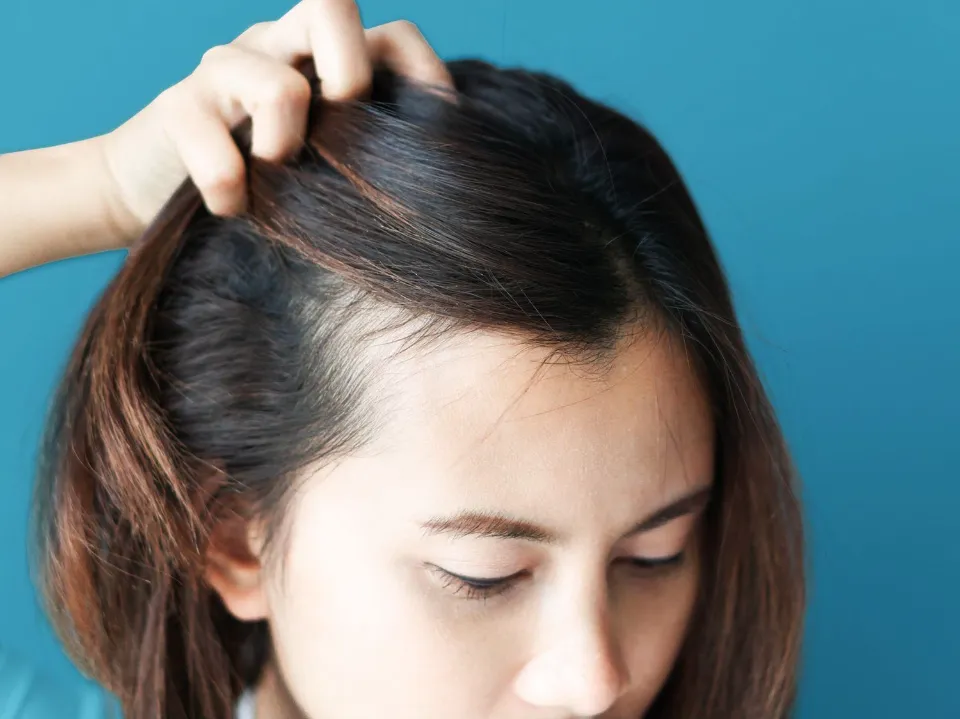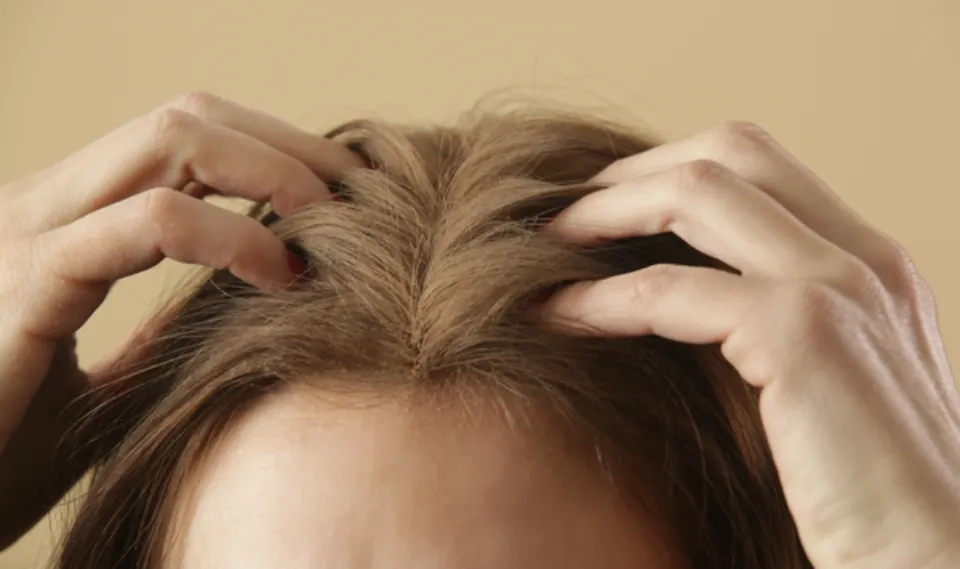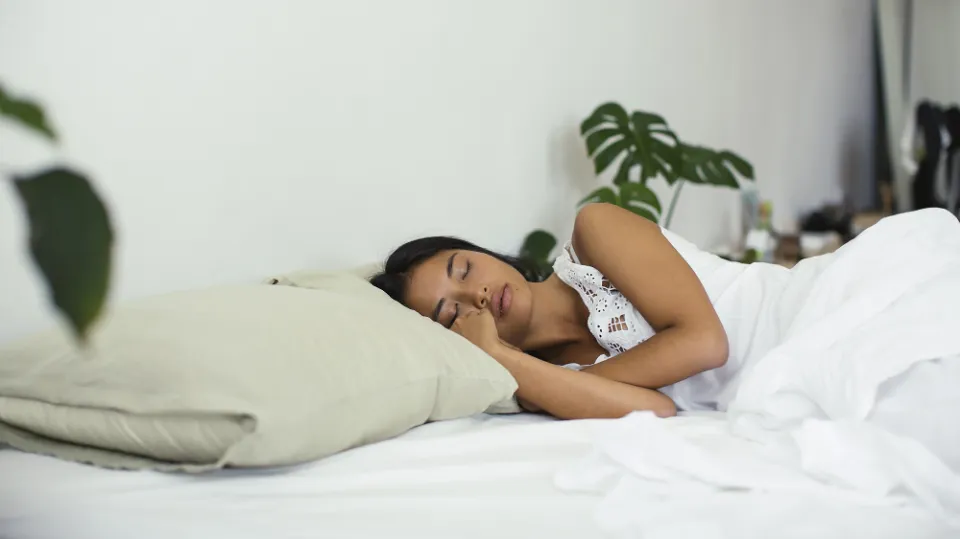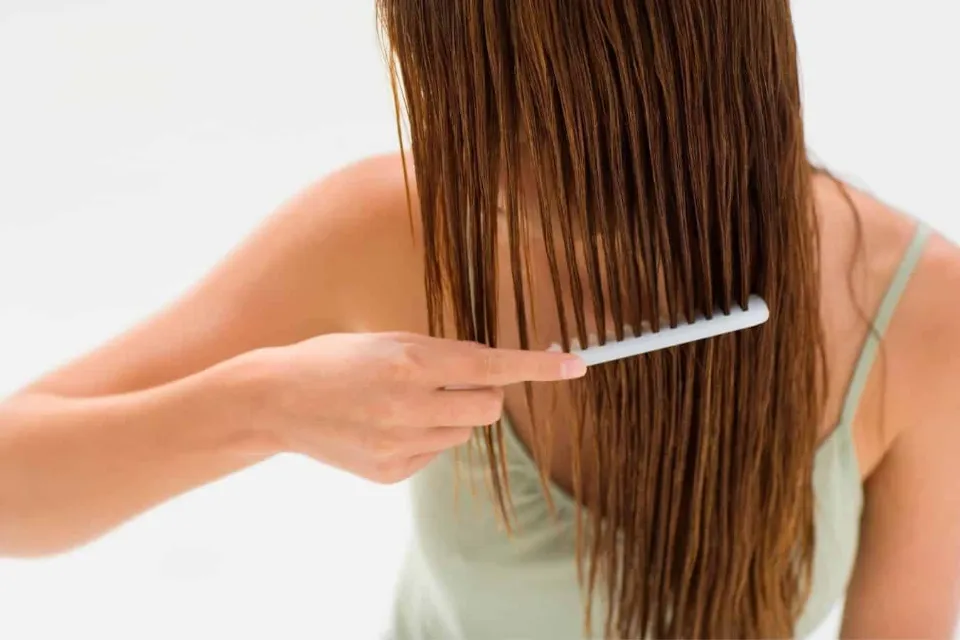A dry, flaky scalp can be very upsetting and embarrassing at any time of the year. Can dry scalp cause hair loss?
Yes, hair loss can occur due to a dry scalp. The fact that itching sometimes causes you to scratch your head vigorously is a major factor in why this occurs.
However, what causes dry scalp and how can it be avoided? Let’s get started.
Can Dry Scalp Cause Hair Loss?
Although they can occur independently, there may sometimes be a link between hair loss and scalp itching.
Infections with fungi, allergic reactions to hair products, inflamed hair follicles, etc. are a few causes of a dry and itchy scalp. – they can cause hair loss.
In other instances, scarring on the scalp can be extremely itchy because scar tissue can harm the skin’s nerve fibers. If a person’s hair loss has led to the formation of scar tissue, this may be causing the itching.
If you scratch a dry scalp repeatedly or aggressively, it leads to extensive damage of the skin on your scalp and hair follicles, so very soon you notice lots of hair fall, along with bleeding and scabbing.
Related Posts:
- Does Alcohol Cause Hair Loss?
- Can Hair Dye Cause Hair Loss?
- Does Creatine Cause Hair Loss?
- Does Hard Water Cause Hair Loss?
- Does Dry Shampoo Cause Hair Loss?
What Causes Dry Scalp and Hair Loss?

Water loss from damage to the lipid barrier of the scalp can result in hair loss.
Scalp dryness results from insufficient sebum production on your scalp, which keeps the scalp moisturized. Other parts of your body where you may also experience dry skin include. Xerosis is a term used to describe dry skin.
Typically, you shouldn’t be concerned about dry skin, according to the American Skin Association. Regardless, it is annoying. You might also feel self-conscious about your perpetually scratchy scalp and the “snowflakes” on your shoulders.
Knowing what might be causing the dry scalp in the first place will help you find the best treatment for your hair loss.
Washing Hair Too Frequently
You don’t need to wash your hair every day.
To do that is actually a bad idea. You are robbing the scalp and hair follicles of moisture and natural oils. Your scalp may become dry as a result, and your hair may become brittle and weak.
Those with very oily, thick hair might need to wash their hair every day.
Additionally, people who engage in strenuous exercise might also need to wash their hair every day. In the alternative, sweat, grime, and clog your scalp’s pores.
Additionally, due to excessive sweating, people who live in hot, humid climates find it challenging to go a day without shampooing their hair.
Moisture-Stripping Hair Products
These are usually the culprits. Itchy, dry scalp is a common side effect of sulfates in shampoos. Avoid being seduced by shampoos’ attractive packaging. The ingredients are listed at the back; be sure to read them.
Avoid shampoos that contain sodium chloride (salt), ethanol, propanol, isopropyl, and other alcohols, as well as ammonium lauryl sulfate/sodium laureth (and lauryl) sulfate.
You should also be aware that an allergic reaction to a component of hair care products can cause your scalp to become dry, irritated, or red. Contact dermatitis is what is happening here.
Despite your desire to scratch the itch, remember that doing so may make the symptoms worse. So, avoid doing that.
Contact dermatitis symptoms may go away on their own after a month if you stop using the allergen-containing product. However, be sure to seek advice from a medical expert.
Eczema Or Atopic Dermatitis
Your scalp may become dry, itchy, red, and inflamed due to this additional condition. Most often, it runs in families. You could therefore have eczema if someone in your family does.
Atopic dermatitis can also be brought on by other environmental factors like stress, pollutants, and weather changes.
It is important to use mild shampoos and moisturizing creams so that you don’t end up aggravating your hair loss. To begin treating it, get in touch with your doctor.
Scalp Psoriasis
The hair cells grow much more quickly than they shed, which is an autoimmune condition.
As a result of the accumulation of skin cells, plaques—crusty, scaly patches—appear on the scalp. It can produce flakiness, itchiness, redness, and swelling.
There is no known cause for scalp psoriasis. Yet some things, like stress, physical harm, climatic changes, and infection, can cause it. If your condition is severe, your doctor may advise you to take immune-suppressing medications or anti-inflammatory corticosteroids.
Changes in Weather
Your hair will suffer the most because of the chilly conditions and low humidity. Your scalp and hair will lose all moisture due to the wind. Despite this, you shouldn’t get ready for dry scalp whenever winter approaches.
Even if you enjoy taking hot baths, they can sometimes leave your skin feeling tight and dry. Consequently, it’s crucial that you wash your hair with warm water.
Other than that, you might think about massaging your scalp before shampooing your hair. Use conditioners and moisturizers on your hair as well.
To keep your hair moisturized, you might also profit from purchasing a humidifier.
How to Avoid Dry Scalp and Hair Loss?
There are more than a few things that you can do to prevent a dry scalp (and the subsequent hair loss). These can also aid in halting hair loss brought on by a dry scalp.
Keep in mind that not all types of hair loss will respond to them; some may require medication. These suggestions, however, can be useful if the cause of the dry scalp is poor hair maintenance or extreme weather.
Drink Water and Eat Healthily

How can you maintain the hydration of your skin? Well, of course, drink water! Your throat begins to dry out, and so does your hair. So make sure to quench its thirst by consuming plenty of water. Having a dry, itchy scalp is easier to manage with it.
Eating foods high in proteins, vitamins, zinc, iron, essential fatty acids, and biotin will also ensure healthy hair growth. Not just a dry scalp, but nutritional deficiencies may also contribute to hair thinning.
DIY Hair Masks
You can always rub coconut oil on your scalp or combine it with tea tree oil before doing so if you have a dry scalp. Additionally, you can apply jojoba oil, olive oil, and aloe vera to your scalp. Additionally, they can supply the hair shaft with nutrients.
In addition, the fatty acids in avocados can benefit your hair by nourishing it.
Bananas, yoghurt, eggs, honey, and apple cider vinegar are all acceptable ingredients to include in your hair mask (though not all of them at once). Each of these can assist in hydrating your hair.
Also Read: Can Hair Loss Be Reversed?
Massage the Scalp
Receiving a soothing scalp massage, even for a short time, is the best thing ever. A dry scalp can benefit surprisingly from it as well. It boosts the production of oils in addition to enhancing blood circulation.
On the scalp, gently move your finger in a circular motion. To help with hair loss, you can always massage oils into your scalp.
Use Gentle Hair Care Products
The health of your scalp and hair depend on how often you shampoo, but most people don’t need to. Use those with mild formulas even then to avoid irritation, dryness, or itching of the scalp.
A good alcohol to have in your shampoo is cetearyl, cetyl, stearyl, and lauryl. They aid in hydrating the hair follicles and scalp. Consider including a moisturizing conditioner in your hair care regimen as well.
Finally, try to refrain from using numerous hair styling tools, such as curlers and straighteners. Additionally, the heat from them can weaken the hair shaft and accelerate hair loss.
Takeaway: Can Dry Scalp Cause Hair Loss
There are many different reasons for hair loss due to a dry scalp.
if you have noticed a lot of hair fall recently, the cause might a dry scalp, so you should start following these remedies immediately, instead of neglecting the issue, or the problem might become worse.
To find out if you can use a medicated shampoo to treat a dry scalp, you can even speak with a dermatologist.
FAQs
Does Hair Loss from Dry Scalp Grow Back?
If the underlying cause is effectively treated, hair loss brought on by a dry scalp might be able to grow back.
What Vitamin Deficiency Causes Hair Loss and Dry Skin?
Hair loss may result from a vitamin A deficiency.
How to Treat Dry Scalp?
If you have both dandruff and a dry scalp, the baking soda and olive oil mixture is a good option.




